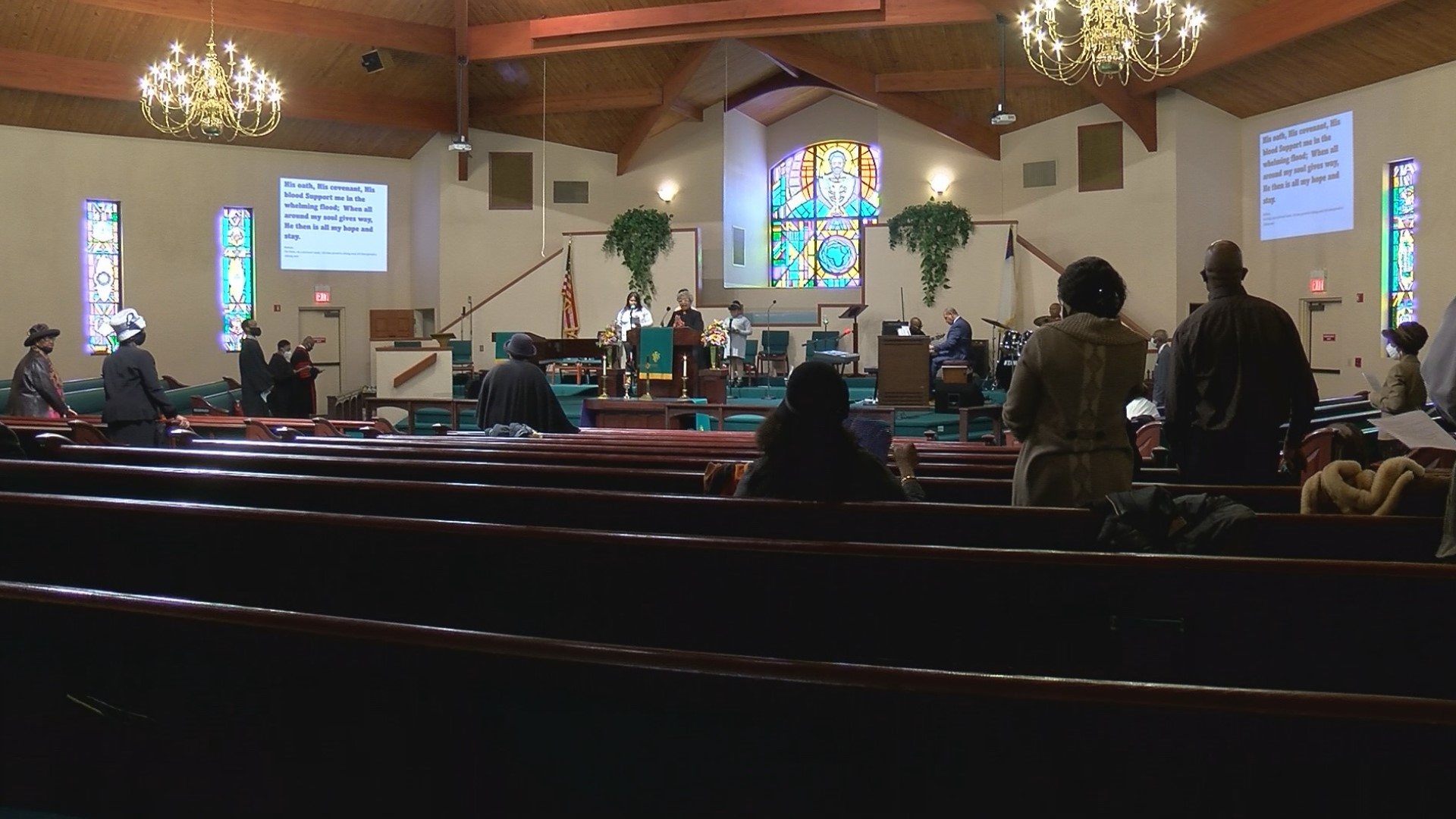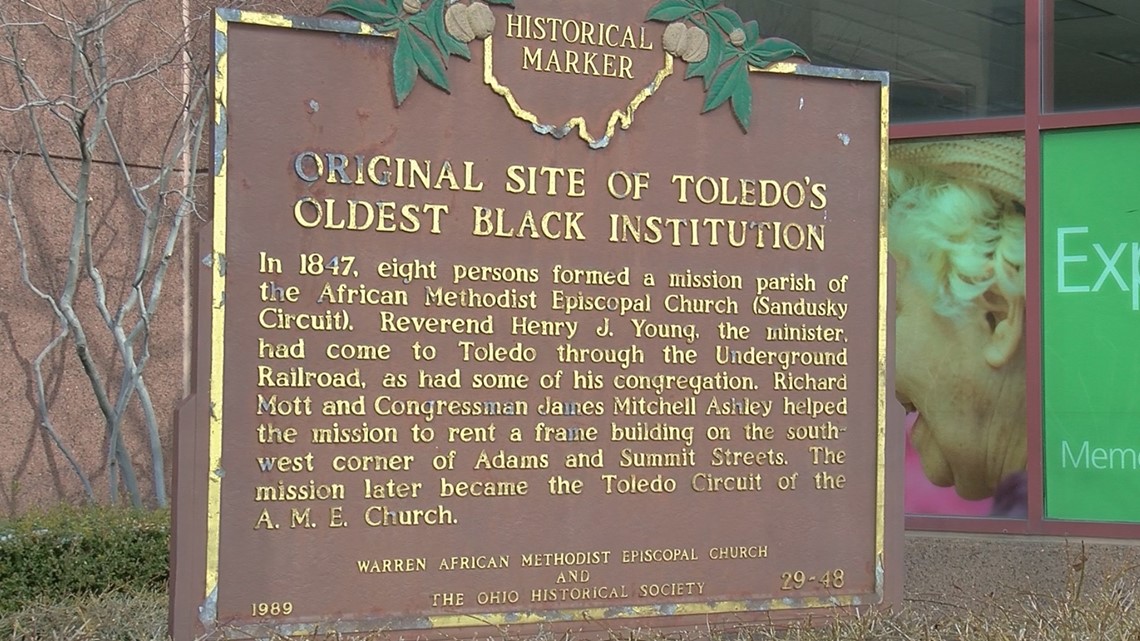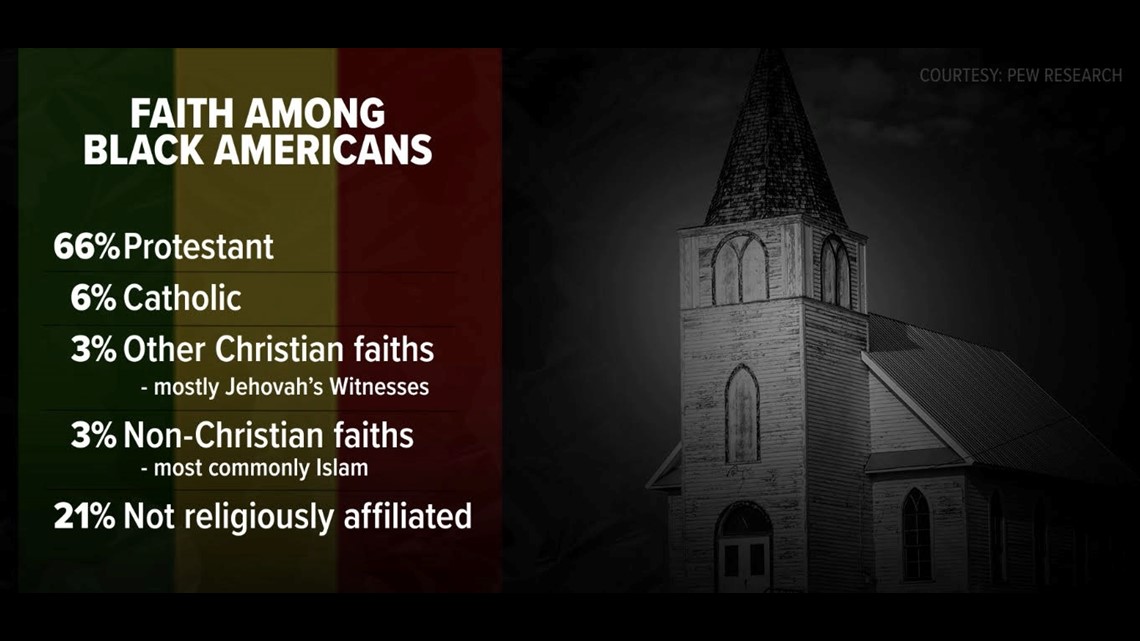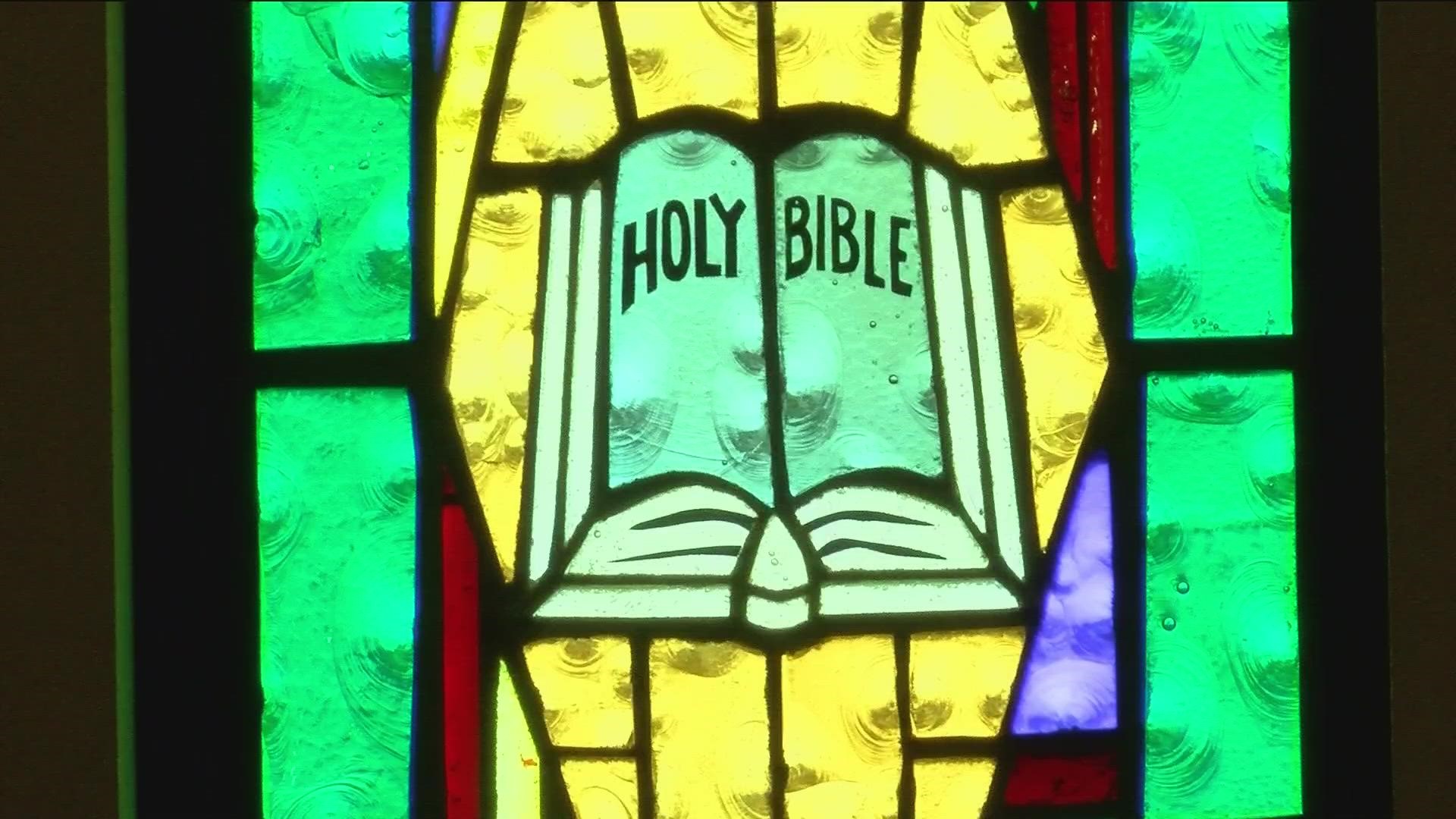Faith, family and future: The Black Church in Toledo
Toledo's oldest Black church was established in 1847. Community leaders explain why it continues to be relevant today.

Origins of the Black Church Changing the narrative
The customs and traditions you’d find in predominantly Black churches today have a deep-rooted history.
The University of Toledo’s Director of Africana Studies, Angela M. Siner, says the majority of African Americans today practice Christianity.
“The old phrases that African Americans use, you can ‘call God on the mainline,’ it’s a direct line, it’s a direct connection to Him,” she said.
Siner explained many of these phrases have a profound historical significance.
“Late at night deep in the woods, during the period of enslavement they would hold these meetings called hush harbor or brush harbor meetings (infused with African traditions) in which they made Christianity speak to their needs, made it relevant to their lives," she said.
According to Siner, there’s often discussion about Christianity being the religion of the oppressor.
“What one African American theologian said is very powerful," Siner said. "He said, among individuals of African descent, the religion of the oppressor, they took that and they turned it around and made it relevant to their lives."
According to Siner, Christianity among African Americans grew into a theology in its own right.
“They created what I call a Black theology, that God was a personal God, if God could save Meshach, Shadrach and a bad Negro--I mean Abednego--why couldn’t he save me?”
Toledo's Oldest Black Church Founded in 1847
In 1847, Toledo’s first Black church was established. What’s now, Warren African Methodist Episcopal (A.M.E.) Church on Collingwood Boulevard in central Toledo started on Summit Street, (downtown Toledo,) as part of the A.M.E. denomination’s Sandusky Circuit.


“African Americans came to Toledo, from my understanding, from the Underground Railroad on the way to Canada and many of them stopped here and became domestic workers and remained,” Warren A.M.E. Church Pastor Reverend Otis Gordon, DMin, said.
Gordon described how important religion and the church became in the lives of so many African Americans in a country filled with segregation and racism.
“When they worked in society they were no one, they were second class citizens," he said. "But when they came into the church, they could be the preacher, they could be the officers, they were respected and revered.”
According to scholars, the church was a place of safety.
“To use the phraseology from the church, it was a refuge, a shelter in the storms of racism and racial discrimination,” Siner said. “It was a place that African Americans could go and it was the first institution that they actually owned and controlled.”
Gordon said he’s part of a long line of other pastors who have served at Warren and continued the push for social justice.
“The best way to bring about change is to be part of the system to change it from within," he said. "I’m not one who advocates destroying the system but I think you cannot make change happen unless you have a seat at the table."
Gordon described the difficulties he faces today, even as a leader in his church and community.
“I struggle to have a seat at the table and to advocate and speak on behalf of African Americans and the poor.”


Gordon said in the 1800s abolitionist Frederick Douglas was invited to speak and many prominent civil rights leaders of the 50s and 60s came through Toledo and were able to visit the church.
“The history of Warren is very long and storied because we’ve been involved in community events and civil rights since our inception,” he said.
More recently, after the police murder of George Floyd in Minnesota, the community assembled in Warren’s parking lot for a march. Not only has the church supported this and other community events, there’s also a senior center on the property and a food pantry.
“On Sunday mornings it’s not uncommon for African Americans to sit in church and hear about issues that are confronting the Black community,” Siner said. “There’s no separation in the Black Church between the sacred and the secular.”
Is the Black Church relevant today? Meeting the need
According to a Pew Research study published in 2021, about 66-percent of Black Americans are Protestant but what’s startling for Siner is the fact that one in 5 Black Americans surveyed are not affiliated with any religion.


“But even with that unaffiliated number I still see the Black Church having relevance in the community,” Siner said. “Despite the fact that we might think the Black church is irrelevant today, it is still relevant because African Americans have the highest attendance rates bar none for attending church, and so the church is still speaking to the needs of the people.”
Gordon believes that once the church becomes more relevant to people in terms of meeting them where they are with the message of Christ then the church will be more successful.
“The truth of the matter is that the church will never die…throughout the larger history of the church, it has ebbed and webbed, so we are in one of those times. The church is in the process of changing,” Gordon said. “There is hope because I see a new generation of educated, strong, smart African Americans who are willing to advance the cause of social justice.”


Siner said the two most important institutions in the African American community have always been the African American family and the Black Church. Despite societal challenges, they’re still standing today.
“The Black Church has been and will be a part of the African American community, it’s like the two are tied at the hip and you can’t have an understanding of the Black community without understanding the Black Church," she said.
MORE BLACK HISTORY MONTH HEADLINES FROM WTOL 11


